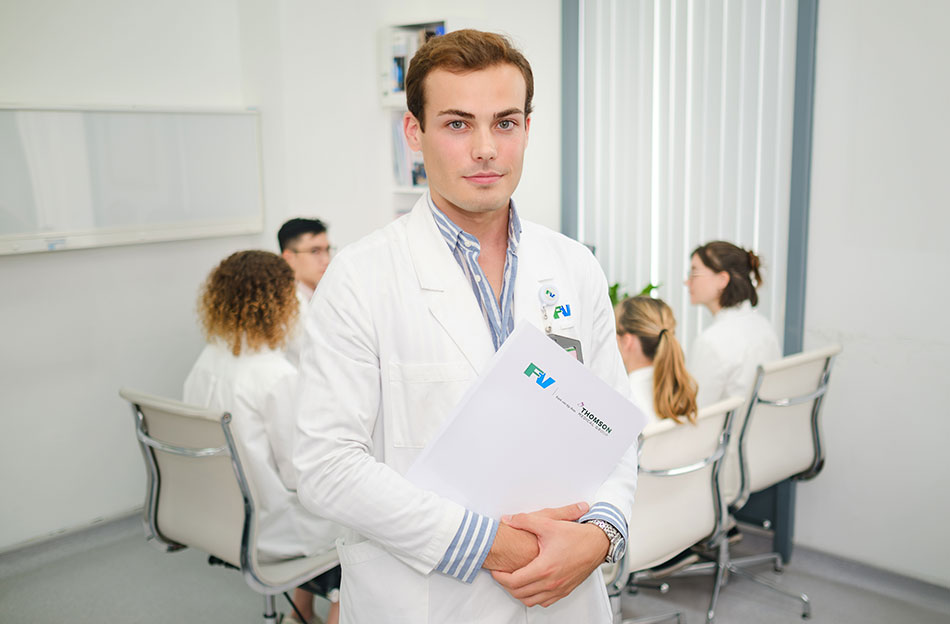The FV 12-month practice training programme is composed of four comprehensive chapters
1. Chapter 1: Orientation training by the training center
This initial chapter aims to provide practitioners with the foundational elements required for their medical practice at FV Hospital. It includes:
- Legal knowledge
- Code of conduct
- Conduct rules for doctors
- Milestone levels and reporting
- Employee regulations
- Orion management software
- Orientation training for medical policies
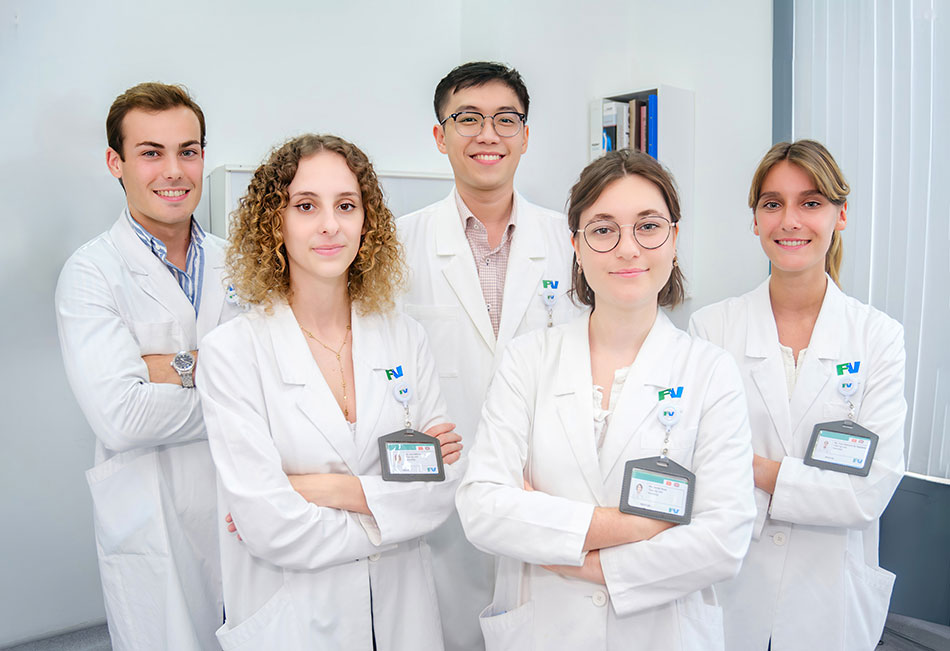
2. Chapter 2: Professional medical examination and treatment practice in emergency resuscitation
In this chapter, practitioners will choose one of the following units to gain hands-on experience in emergency medical care:
- Emergency department
- Intensive care unit
Practitioners will participate in managing various emergency and critical medical conditions, including but not limited to:
- Triage patient in the A&E department
- Cardiopulmonary resuscitation
- Airway foreign body
- Respiratory failure
- Altered consciousness
- Shock
- Seizures
- Poisoning
- Accidents: snake bites, bee stings, drowning, electrocution
- Electrolyte and acid-base disorders
- Burns
- Emergency haemodialysis
- Trauma
- Emergency abdominal surgery
- Ventilator support: indications and basic modes
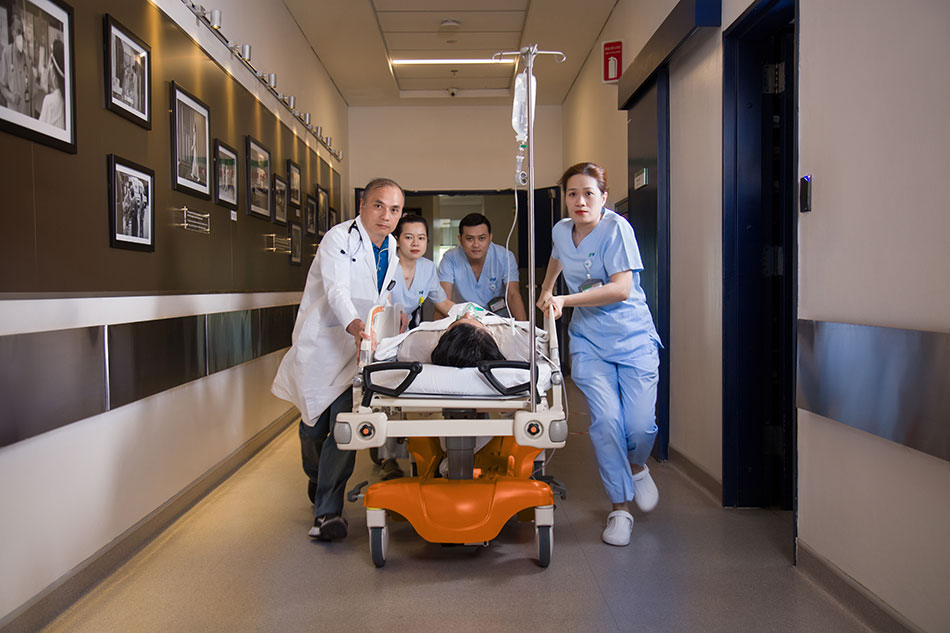
3. Chapter 3: Professional medical examination and treatment practice in different specialties:
During the practical, the practitioner participates in managing of main frequent medical condition, disease and procedures in the 04 main specialties such as Internal medicine, Surgical medicine, Paediatrics & neonatology, Obstetrics – gynaecology and will choose one of the following clinical departments:
- Ophthalmology
- Otorhinolaryngology
- Dental and maxillofacial
- Diagnostic imaging
4. Chapter 4: Final Evaluation
This final chapter involves evaluating the practitioner’s performance and issuing the certification of completion:
- End-Practical-Contract Evaluation: Comprehensive review of the practitioner’s progress and competencies.
- Issue of Certification: Awarding the Certificate of Completion to those who meet all the program’s requirements.
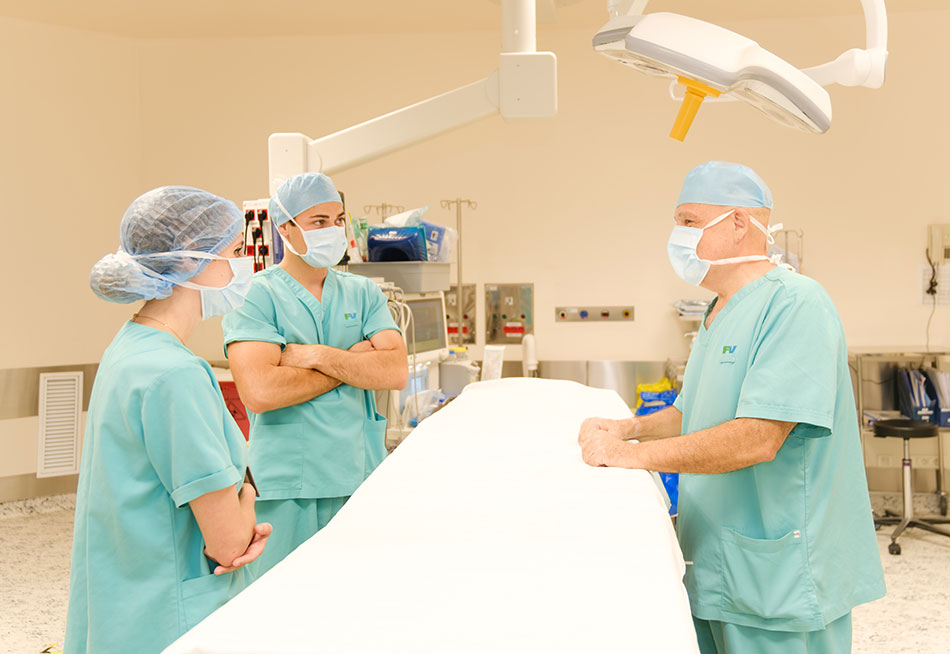
Additional Training and Skills Development
Throughout the training period, practitioners will also receive essential skills in medical examination and treatment, including:
- Patient Assessment: Conducting thorough and focused patient assessments in various clinical settings (Outpatient, Inpatient, Emergency).
- Disease Diagnosis: Synthesising patient information to make accurate initial and differential diagnoses.
- Prescription Writing: Prescribing medications safely and in compliance with hospital and national guidelines.
- Medical Record Documentation: Maintaining accurate and complete medical records, including discharge summaries and consent forms.
- Patient Management Reporting: Summarizing and reporting patient status accurately and coherently.
- Evidence-Based Practice: Utilizing and applying evidence-based medical literature in clinical decision-making.
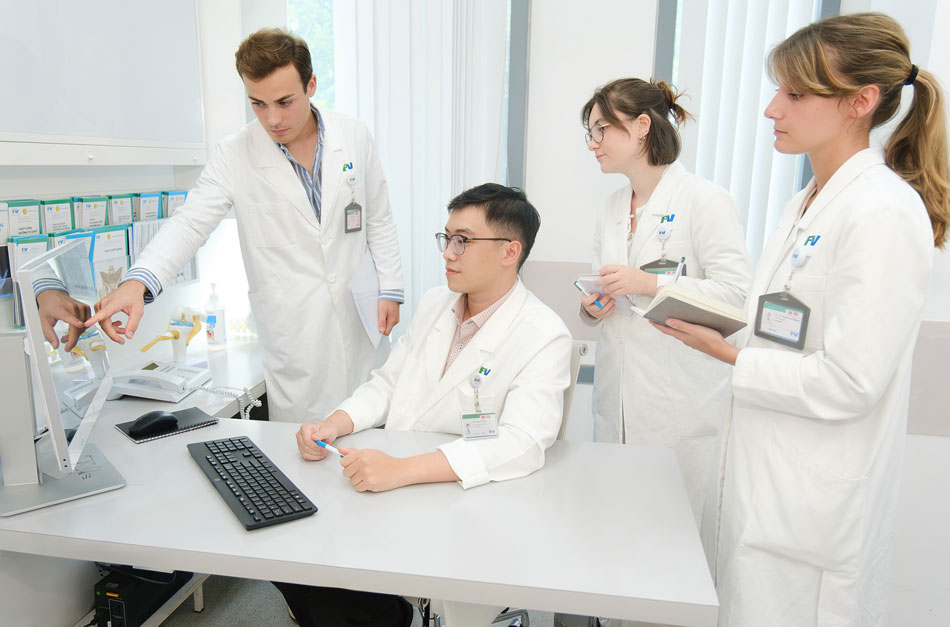
Practical Experience in Various Clinical Settings
Practitioners will have opportunities to practice patient assessment and management in different clinical settings, such as:
- Outpatient Department: Including initial assessments, follow-up visits, specialty clinics (e.g., dermatology, dietetics, chemotherapy).
- Inpatient Department: Including initial assessments, care planning, reassessments in ICU, maternity, paediatrics, and surgical units.
- Specialised Consultations and referrals: Seeking opinions from specialists and consulting clinical psychologists.
Patient Safety and Management Policies
Practitioners will also learn important hospital policies related to patient safety and management, such as:
- Handover and Takeover Procedures
- Primary Doctor and Collaborative Care Policy
- Emergency Response (Code Blue)
- Pre-anaesthesia assessment policy
- Consultation policy
- Continuous Care and On-Call Duties
- Informed Consent and Information Policy
- Incident Reporting Policy
- Other related Policies…

Practicing Basic Procedures in Specialties
Practitioners will engage in practicing basic medical procedures, including:
- Oxygen therapy
- Mechanical ventilation
- Aerosol therapy
- Endotracheal intubation
- Bandaging and haemostasis
- Fracture immobilization
- Cardiopulmonary resuscitation
- Pleural and lumbar puncture
- Central venous catheter placement
- Blood transfusion
- ECG interpretation
- Normal delivery assistance
- Suturing soft tissue wounds
- Other procedures
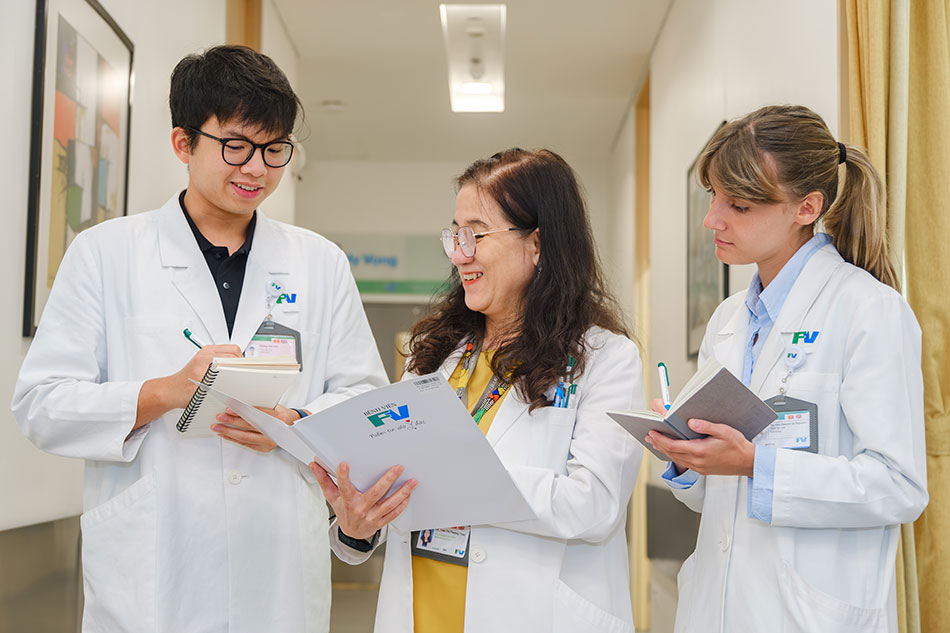
Milestones and Competency Levels
The program defines milestones for competency development across six domains:
- Patient Care
- Medical Knowledge
- System-Based Practice
- Practice-Based Learning and Improvement
- Professionalism
- Interpersonal and Communication Skills
Each milestone is evaluated on a scale from Level 1 (novice) to Level 5 (skilled). Tutors and Heads of Departments will review evaluations to determine the practitioner’s progress.
Final Course Evaluation
The final evaluation involves gathering competency assessments and verifying the completion of practical procedures.
The certification of completion of practical training program given to whom has matched enough conditions as below:
- Achieved Level 2 or higher in the performance assessment for practitioners.
- Completed level 3 or higher for over 50% of the total number of basic medical procedures/procedures participated.
